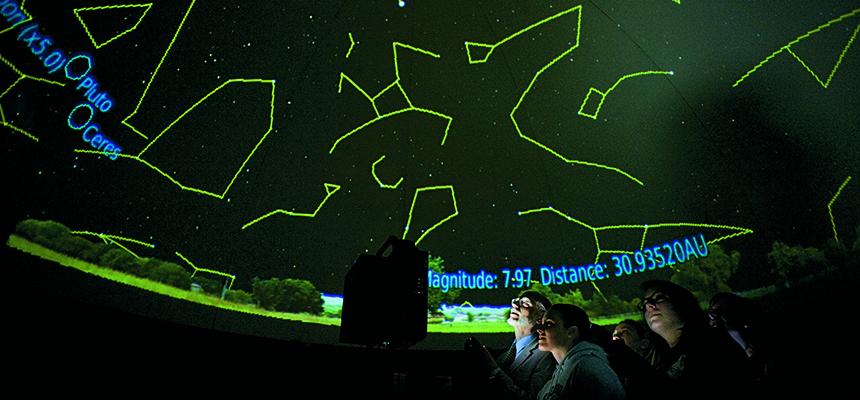Physics

Features of the Physics Program
- Problem Solving – tackling challenging problems and delivering solutions develop transferrable skills for in-demand careers (engineering, software development, financial analysis, etc.)
- Quantitative Skills – emphasis on both physics and math provide a strong foundation for a variety of fields
- Career Options – pathways designed for your goals (graduate school, dual degree in physics and engineering, teaching certification, etc.)
- Professional Development – opportunities to build your resume through internships, research, and teaching assistant positions
Customize Your Education
At NDMU, our strength is our ability to weave your unique interests into your individual education. Faculty and advisors will help you craft an experience based on your aspirations through course electives or minors.
Double Major or Add a Minor
Many physics majors choose to double major or add a minor in chemistry, mathematics, or computer information systems to prepare for graduate programs in advanced fields of science and engineering.
Dual Degree Engineering Program
Through articulation agreements with premier engineering programs, NDMU offers a pathway to earn a BA in Physics from NDMU in 3-4 years followed by a BS in Engineering in 2-3 years from one of the following universities:
- G.W.C. Whiting School of Engineering at The Johns Hopkins University
- Fu Foundation School of Engineering and Applied Science at Columbia University
- McKelvey School of Engineering at Washington University in St. Louis
Engineering programs that can pair with our Physics program include:
- Biomedical Engineering (Columbia and Washington University in St. Louis only)
- Mechanical, Civil, Electrical, or Environmental Engineering
The Dual Degree Engineering Program includes opportunities for chemistry, computer information systems, mathematics, and physics majors. Contact the program coordinator to discuss your interests and goals to determine the most appropriate program for you.
Note: Admission to engineering schools is competitive and is not guaranteed.
Pursue a Teaching Career
If your dream is to ultimately become a teacher, the BA/MAT program at NDMU provides a pathway to earn both a BA in Physics and a MA in Teaching in 4-5 years so that you can become certified to teach physics in secondary schools (grades 7-12).
Physics Minor
The Minor in Physics provides an introductory foundation in the laws of the natural world. As a fundamental science, the physics minor adds depth when paired with a major in the sciences.
Majors that often add a physics minor include chemistry, mathematics, and computer information systems.
Research
One of the hallmarks of the rich educational environment at NDMU is the opportunity to participate in research in your field of interest. Our annual Nancy Kreiter Student Research Day provides the perfect forum to showcase your hard work with a formal research presentation to the NDMU community.
Capstone Experience
In the third or fourth year, physics majors take everything learned and apply it through a teaching assistantship, research assistantship, or internship. The capstone experience integrates theory, science, and practice. It is an opportunity to explore your area of interest and apply classroom learning to a real-world experience.
Examples of Capstone Experiences
- International Research in England and China through NANOGrav
- National Student Leadership Conference, Engineering Program Team Advisor
- Summer Research in Nuclear Physics at University of Indiana-Bloomington
- UMD GRAD-MAP Summer Research Program at University of Maryland-College Park
- Research Collaboration with NDMU Faculty

Marion Smedberg
Pursuing Study of Nuclear Fusion
Physics Careers
Understanding the principles of physics can lead to a wide range of careers including opportunities in renewable energy, climate and weather, technology, and space.
Graduates of the NDMU physics program have secured positions at organizations such as:
- NASA/Goddard Space Flight Center
- NASA/Marshall Space Flight Center
- U.S. Department of Energy
- Lockheed Martin
- Peace Corps
- Johns Hopkins Applied Physics Lab
Graduate Programs
- Physics
- Applied Physics
NDMU graduates have also gone on to pursue graduate programs in a variety of fields including applied optics, electrical engineering, and nuclear fusion.


